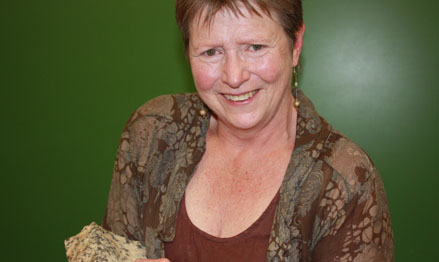Latest News Archive
Please select Category, Year, and then Month to display items
12 June 2024
|
Story Lunga Luthuli
|
Photo supplied
![]()
Richard Molefe, a final-year BCom Investment Management and Banking
student at the University of the Free State (UFS), was recently elected uncontested as the National Chairperson of the Black Management Forum (BMF) National Student Chapter. The BMF aims to empower managerial leadership among black individuals in South Africa. Molefe's election signifies a step towards inclusive leadership structures that reflect wider societal values.
In an exclusive interview, Molefe shares his vision for youth empowerment and his plans for the Student Chapter's endeavours.
“The Black Management Forum’s programmes of development and advancement of managerial leadership and socio-economic transformation have exposed me to leadership opportunities that enhance my potential and aspirations. The opportunity is an indication that I have done something right, but I must constantly remind myself that I have not arrived,” said Molefe.
In his one-year term of office, Molefe wants to ensure that national structures of the Student Chapter exist and are functional, key pillars – promoting leadership, managerial leadership development skills, and entrepreneurial skills development in higher education institutions.
Prof Tredoux turns theories regarding the formation of metals on its head
2013-09-17
|
 |
|
Prof Marian Tredoux
17 September 2013 |
The latest research conducted by Prof Marian Tredoux of the Department of Geology, in collaboration with her research assistant Bianca Kennedy and their colleagues in Germany, placed established theories regarding how minerals of the platinum-group of elements are formed, under close scrutiny.
The article on this research of which Prof Tredoux is a co-author – ‘Noble metal nanoclusters and nanoparticles precede mineral formation in magmatic sulphide melts’ – was published in Nature Communications on 6 September 2013. It is an online journal for research of the highest quality in the fields of biological, physical and chemical sciences.
This study found that atoms of platinum and arsenic create nanoclusters, long before the mineral sperrylite can crystallise. Thus, the platinum does not occur as a primary sulphur compound. The research was conducted at the Steinmann Institute of the University of Bonn, Germany, as well as here in Bloemfontein.
Monetary support from Inkaba yeAfrica – a German-South African multidisciplinary and intercultural Earth Science collaborative of the National Research Foundation (NRF) – made this research possible. Studies are now also being conducted on other metals in the precious metal group, specifically palladium, rhodium and ruthenium.
The discovery of the nanoclusters and the combination with arsenic can have far-reaching consequences for the platinum mine industry, if it can be utilised to recover a greater amount of platinum ore and therefore less wastage ending up in mine dumps. This will signify optimal mining of a scarce and valuable metal, one of South Africa’s most important export products.
For Prof Tredoux, the research results also prove thoughts she already had some twenty years ago around the forming of platinum minerals. “Researchers laughed in my face, but the evidence had to wait for the development of technology to prove it.” Young researchers were very excited at recent congresses about the findings, since the new models can bring new insights.
“Chemistry researchers have been talking about platinum element clusters in watery environments for quite a while, but it was thought that these would not appear in magmas (molten rock) due to the high temperatures (>1 000 degrees celsius).”
Prof Tredoux has already delivered lectures at congresses in Scotland, Hungary, Sweden and Italy on this research.
Read the article at: http://www.nature.com/ncomms/2013/130906/ncomms3405/full/ncomms3405.html